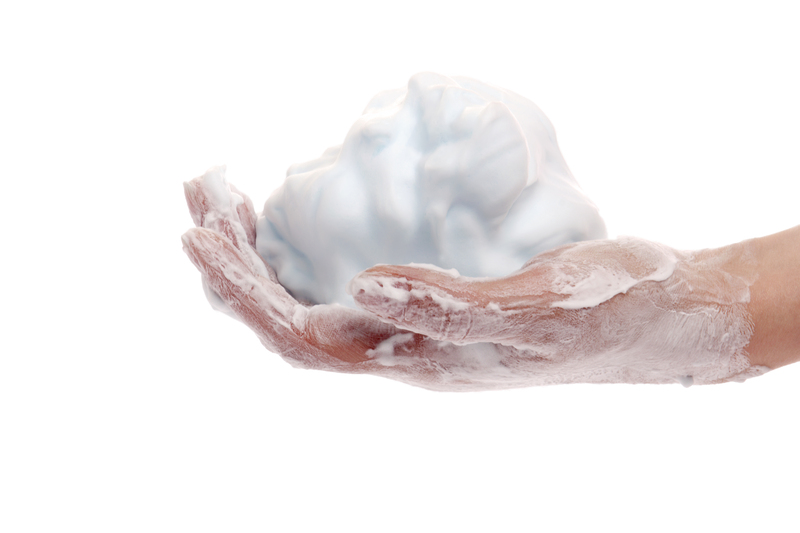Deep Clean Solutions for Carpets and Hard Surface Floors
Posted on 14/08/2025
Deep Clean Solutions for Carpets and Hard Surface Floors
When it comes to maintaining a clean and healthy home or workplace, few things are as important as thoroughly cleaning your floors. Whether you have plush carpets, gleaming hardwood, classic tile, or resilient vinyl, the right deep cleaning techniques can dramatically prolong the life of your flooring and create a healthier environment for everyone. This comprehensive guide explores deep clean solutions for carpets and hard surface floors, equipping you with the knowledge and tips needed for pristine results.
Deep Cleaning Carpets: Revitalize and Refresh
Carpets add elegance and comfort to any interior space, but they're also a magnet for dust, allergens, bacteria, and stains. Vacuuming is crucial for daily maintenance, but periodic deep carpet cleaning is essential for eliminating grime embedded deep within the fibres.
Why Deep Clean Carpets?
- Removes Allergens: The carpet fibers trap dust, pollen, pet dander, and even mold spores.
- Stain Removal: Deep clean treatments can lift old, stubborn stains and odors.
- Prolongs Life: Regular deep cleaning prevents fiber breakdown and plushness loss.
- Enhances Appearance: Restores the original color and pattern, making carpets look like new.
- Promotes Healthier Air: Reduces indoor allergens and microbial growth.
Methods for Deep Cleaning Carpets
Various proven methods exist for deep carpet cleaning solutions, each with unique benefits. Here's a breakdown of the most effective approaches:
-
Steam Cleaning (Hot Water Extraction):
- Uses high-temperature water and cleaning solution under pressure.
- Penetrates deep into fibers, dislodging dirt and bacteria.
- Powerful vacuums immediately remove loosened soil and excess moisture.
- Recommended For: Most residential and commercial carpets.
-
Dry Carpet Cleaning:
- Low-moisture process--perfect for quick drying.
- Powdered cleaning agents and micro-sponges are applied and agitated.
- Soil attaches to the agent, then everything is vacuumed away.
- Recommended For: Offices, hotels, and environments needing rapid turnaround.
-
Shampooing:
- Foamy shampoo is scrubbed into carpet with a rotary machine.
- Dirt suspends in the foam, then is extracted by wet vacuum.
- Effective For: Heavy soiling but may leave some residue if not rinsed properly.
-
Bonnet Cleaning:
- Uses a rotating pad soaked in cleaner to lift surface dirt.
- Mainly cosmetic; best for interim cleaning on commercial carpeting.
-
Encapsulation:
- Polymer-based cleaning solution traps dirt in crystals.
- Once dry, crystals are vacuumed away, removing soil efficiently.
- Leaves less residue than traditional shampooing.
Step-By-Step: How to Deep Clean Your Carpet
- Clear the area: Move furniture and fragile items out of the room.
- Thoroughly vacuum: Remove surface debris and pet hair, targeting edges and corners.
- Spot-treat stains: Use an enzyme-based pre-treatment for tough stains (like wine, coffee, or pet accidents).
- Choose your cleaning method: Rent or purchase a carpet cleaner, or hire professional services for optimal results.
- Follow system instructions: Apply cleaning solutions evenly, overlapping passes for maximum coverage.
- Rinse (if needed): If using a shampoo or steam system, be sure to complete a clean water rinse cycle to remove residual chemicals.
- Extract moisture: Use the extractor's vacuum function or a wet/dry vac to pull out as much water as possible.
- Speed up drying: Improve ventilation with fans or open windows--avoid walking on the carpet until it's dry.
- Final vacuum: Once dry, vacuum again to lift the carpet pile and remove any remaining particles.
DIY vs Professional Carpet Cleaning: Which is Better?
While rental machines and store-bought cleaners offer convenience, professional carpet cleaners usually deliver deeper and more consistent results. They utilize commercial-grade equipment, advanced cleaning agents, and expertise in dealing with various carpet fibres and stains. For high-traffic areas, expensive rugs, or persistent odor and stains, a professional deep carpet cleaning service is highly recommended at least once or twice a year.

Deep Clean Solutions for Hard Surface Floors
Hard flooring--such as tile, hardwood, vinyl, laminate, and stone--offers durability and easy maintenance, but they too accumulate soil, grime, and bacteria over time. Routine sweeping and mopping are basics, but deep cleaning hard surface floors is vital for maintaining shine, hygiene, and longevity.
Types of Hard Surface Floors
- Hardwood: Timeless beauty, vulnerable to water and scratches. Requires gentle yet thorough cleaning solutions.
- Tile and Grout: Tiles resist stains but grout lines can harbor dirt and mildew.
- Laminate: Mimics wood, but prone to moisture damage; needs specific products.
- Vinyl and Linoleum: Durable and affordable but can dull with grime and scuff marks.
- Natural Stone: Porous surfaces such as marble, granite, and travertine demand pH-neutral cleaners.
Best Deep Cleaning Methods for Hard Surfaces
Each type of hard floor benefits from specific deep cleaning techniques:
- Steam Cleaning: Effective for sealed tile, stone, and vinyl. The high heat kills germs, loosens grime, and lifts sticky residues.
- Scrubbing with Floor Machines: Commercial scrubbers agitate deep-set dirt, great for restaurants and commercial spaces.
- pH-neutral Cleaners: Essential for stone, hardwood, and laminate to avoid discoloration or etching.
- Grout Cleaning Solutions: Specialized products and grout brushes combat stubborn inter-tile stains.
- Polishing and Sealing: For stone and wood, polishing and resealing protect and restore luster post-cleaning.
Step-By-Step: How to Deep Clean Hard Surface Floors
- Remove all items: Take furniture, rugs, and decor off the floor.
- Dry dusting or vacuuming: Eliminate dust, dirt, and debris. Use a soft-head vacuum or microfiber mop for hardwood.
- Spot-clean stains: Apply spot removers or DIY solutions (like baking soda paste) for isolated grime or spills.
- Mop with appropriate cleaner: Use the right formula for your flooring type, avoiding over-wetting especially with wood or laminate.
- Scrub grout lines: For tile, a grout brush and targeted cleaner will banish deep-seated dirt and bacteria.
- Buff and dry: Use clean towels or microfiber pads to absorb excess moisture and polish the surface.
- Polish or reseal (optional): For wood, stone, or tiles, use polish or sealant to restore shine and protect against damage.
Eco-Friendly Deep Cleaning Solutions
Environmentally responsible cleaning not only safeguards your floors but also protects your family, pets, and the planet. Consider these eco-friendly floor cleaning options:
- Natural Cleaning Agents: Solutions like white vinegar (safe for most tile and vinyl), baking soda, and lemon can be effective and non-toxic.
- Microfiber Mops: Reduce the need for chemical cleaners and use water efficiently.
- Green Certified Products: Look for third-party certifications on store-bought solutions.
- Proper Dilution: Avoid over-concentrating products, which can harm surfaces and indoor air quality.
Maintenance Tips for Carpet and Hard Floors
To extend the effects of your deep cleaning sessions and reduce future effort:
- Vacuum regularly: Use a HEPA filter vacuum for carpets and area rugs, and dust-mop hard surfaces frequently.
- Use entry mats: Trap dirt before it reaches your floors.
- Shoe-free zones: Encourage removal of outdoor shoes indoors.
- Address spills immediately: Prevent stains and sticky residue with prompt cleaning.
- Use furniture pads: Prevent scratches on hardwood or laminate floors.
- Routine professional cleaning: Schedule expert deep cleaning at least once a year for carpets and every 2-3 years for hard floors.
Common Mistakes to Avoid When Deep Cleaning Floors
- Using the wrong cleaner: Products designed for tile or vinyl can damage wood or stone floors.
- Over-wetting: Excessive moisture can warp hardwood, swell laminate, and allow mildew growth in carpet backings.
- Skipping spot tests: Always test a small, inconspicuous area before using a new product or method.
- Ignoring manufacturer's instructions: Always follow care recommendations for your specific flooring type.
Choosing Between DIY and Professional Deep Cleaning Solutions
While DIY cleaning methods can yield good results, **professional deep clean services** offer compelling advantages:
- Specialized Equipment: Stronger suction, higher heat, and tailored tools for every floor type.
- Expertise: Professionals know which solutions and techniques are safest and most effective per surface.
- Time and Effort: Save hours and energy, enjoying superior and lasting results.
- Guaranteed Clean: Many services offer satisfaction guarantees for peace of mind.
For busy households, allergy sufferers, or commercial spaces, investing in **reputable professional cleaning for carpets and hard surface floors** is a smart move.

Frequently Asked Questions About Deep Floor Cleaning
How often should I deep clean carpets?
For homes with pets or children, aim for every 6-12 months. Less-trafficked areas might only need annual cleaning. Allergy sufferers may benefit from more frequent cleanings.
What is the safest way to clean hardwood floors deeply?
Use a pH-neutral cleaner designed for wood and avoid excess water. Microfiber mops and periodic professional cleaning will preserve your floor's finish.
Are steam mops safe for all floors?
Steam mops work wonders on sealed tile and vinyl, but can damage unsealed wood, laminate, and some stone surfaces by causing warping or dullness. Always check manufacturer recommendations.
What's the best way to maintain grout?
Scrub with a grout-safe brush and periodic use of an oxygen-bleach or commercial grout cleaner. Sealing grout once per year helps resist stains and mildew.
Can I use vinegar to clean hard floors?
Vinegar is great for sealed tile and vinyl, but avoid it on marble, limestone, and other natural stones as acid can cause etching. Check your flooring manufacturer for safe-cleaning guides.
Conclusion: Cleaner, Fresher, Healthier Floors
Investing in deep clean solutions for carpets and hard surface floors pays off with vibrant color, lasting durability, and a healthier home or workspace. By understanding your flooring type, using the right **deep cleaning methods**, and practicing preventive maintenance, you ensure a beautiful foundation for years to come. Whether you prefer DIY techniques or professional help, regular deep cleaning is the key to truly spotless carpets and sparkling hard floors.
For expert advice or to schedule a professional deep cleaning service, consult with a trusted local flooring specialist. Your floors--and everyone who walks on them--will thank you!
Latest Posts
Learn expert tips for cleaning your uPVC window frames
Achieve Showroom Shine: Clean Your Car Like an Expert
Shine Revive: Innovative Ways to Clean Jewellery
Achieve a fresh start with our ultimate Spring Deep Clean Checklist



